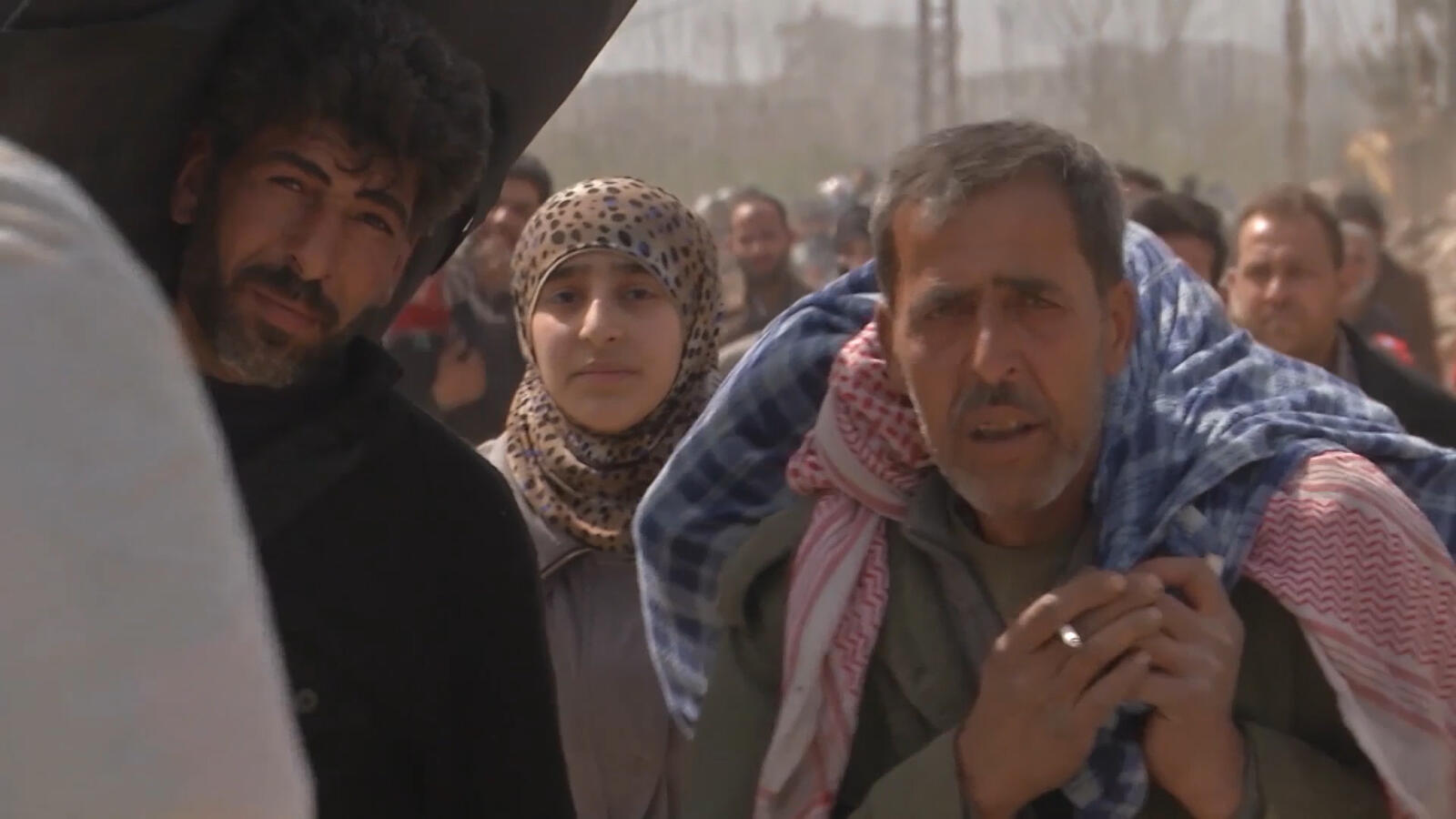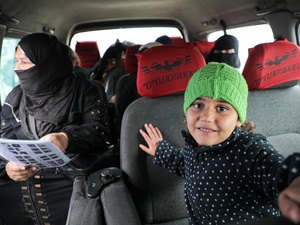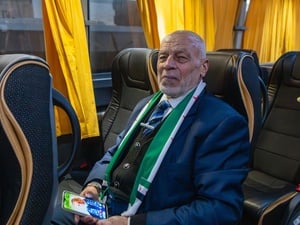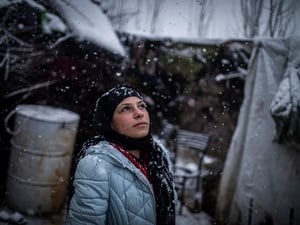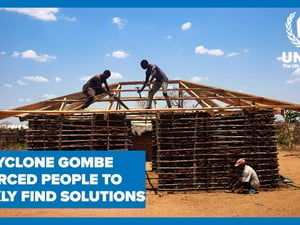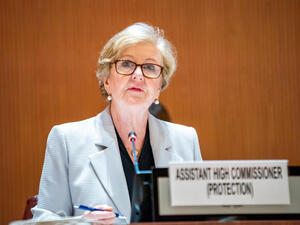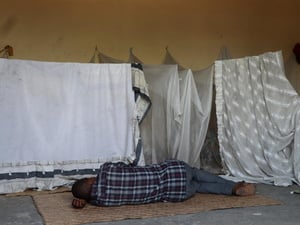As fighting rages, Eastern Ghouta displacement soars
As fighting rages, Eastern Ghouta displacement soars
DAMASCUS, Syria – With his shattered leg held together by metal plates, 75-year-old Ali Touma fled fighting in Syria’s Eastern Ghouta on crutches.
“Even with my broken leg, we made our way out,” he said describing the desperate trek to safety with his wife and grandchildren. “I used my crutches to walk out,” he adds.
Ali and his family are among more than 45,000 men, women and children driven from Eastern Ghouta by war, currently seeking safety at collective shelters in and around the Syrian capital Damascus.
Most of the residents have been trapped for five years by fighting, and many reaching shelter like Ali are broken physically or emotionally. Covered in dust from the destruction, he explains how his wife collapsed on arrival and was rushed to hospital, where doctors found she had suffered a stroke.
“Even with my broken leg, we made our way out. I used my crutches to walk.”
“It’s all because of the miserable hardship we faced over the years … and now we don’t know how long we will stay here - one day, two days, a week. Nobody knows,” he says.
Since war erupted in Syria seven years ago, 5.4 million have fled the country, while 13.5 million Syrians are in need of humanitarian assistance inside their country.
In response to the deepening humanitarian crisis, UNHCR, the UN Refugee Agency, today reiterated its calls for the protection and safety of both the newly displaced and of hundreds of thousands civilians still trapped by fierce fighting and in need of aid.
Among those escaping danger was Mohamad, who fled from his home in Saqba, a few kilometres east of Damascus, on Saturday. He spoke of his fear of not making it to the Hamouriya crossing point and the safety of a shared shelter.
“We walked with two young boys for more than an hour, we were all scared as the fighting was still ongoing … all I want is to secure the future of these children,” he said.
From the outset of the most recent escalation, UNHCR teams have been both at crossing points and at the makeshift collective shelters as thousands of families, exhausted, hungry, thirsty, and sick and with few or no belongings began arriving from Eastern Ghouta.
The newly displaced are currently accommodated in seven collective shelters, in buildings such as schools and an electricity utility, where conditions are very basic. According to UNHCR staff, the needs are overwhelming and growing by the hour. There are also serious health risks.
"All existing shelters are extremely congested and overcrowded and lack basic sanitation."
“All existing shelters are extremely congested and overcrowded and lack basic sanitation. People queue in lines for hours to use restrooms, and most have no lighting,” UNHCR spokesman Andrej Mahecic told reporters at a news briefing in Geneva on Tuesday.
Mahecic said UNHCR and its partners have been working around the clock to provide life-saving assistance, in close coordination with the Syrian Arab Red Crescent, UN agencies and other humanitarian agencies.
UNHCR’s partners are registering persons lacking documents, particularly unregistered newborn children, with a view to tackle this major protection concern with the Syrian authorities.
The UN Refugee Agency has so far delivered 180,000 items of aid, including mattresses, thermal blankets, plastic sheets, winter clothes kits, solar lamps, jerry cans, and kitchen sets.
At several collective shelters, people living in the open in schoolyards are desperate and using UNHCR’s blankets as partitions to create some privacy, and to protect themselves and their families from the sun during the day and from the cold at night.
UNHCR calls on all parties to respect international humanitarian law and human rights law in the treatment of civilians both in and fleeing Eastern Ghouta.


